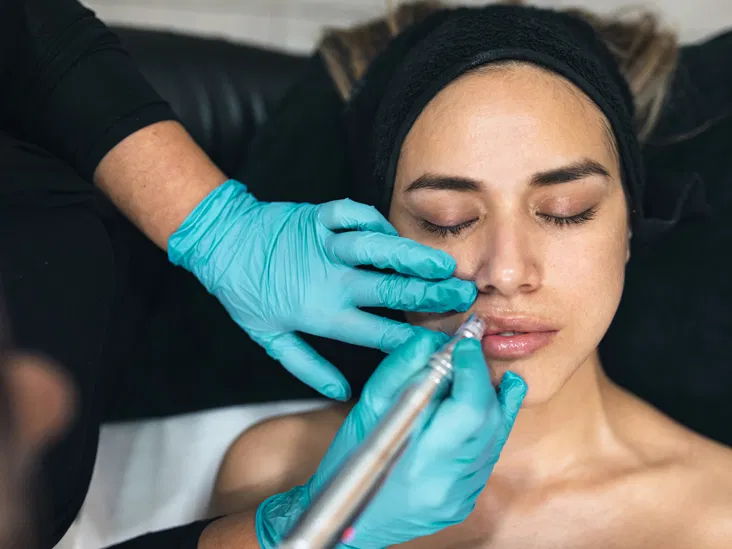Have you ever sat and pondered about the secret behind that youthful glow you always see on influencers and celebrities? One of the most viral and effective ways to get a radiant and rejuvenated appearance is via hyaluronic acid (HA) fillers. These injectable treatments has gained great fame in recent years since they are ideal for a range of aesthetic concerns, ranging from lines and wrinkles to lip augmentation and facial volume restoration.
But one question lingers; Are HA fillers safe? Well, in this article we’ll go deep into details, going through what HA fillers are, how they work, and whether it’s a good option for you.
What is a Hyaluronic Acid Filler?
When talking about Hyaluronic Acid fillers, think of them as a natural substance that’s already produced by your body. It’s normally found in your skin, joints, and other tissues, keeping them hydrated and plump. When injected into the skin, HA fills adds volume while smoothening out wrinkles. They can also enhance your facial features easily.
What are the Benefits of Hyaluronic Acid Fillers?
- Temporary and Reversible: HA fillers are temporary unlike some other cosmetic procedures. If you’re not ok with the results, they can be dissolved immediately.
- Natural Results: HA fillers easily integrates with your skin, creating a natural and refreshed look.
- Minimal Downtime: Most people can continue their normal activities shortly after the procedure.
- Versatility: HA fillers can be utilized in addressing diverse aesthetic issues, from lip augmentation to facial volume restoration.
Are there Potential Risks of Hyaluronic Acid Fillers?
Although HA fillers are considered to be generally safe, there are some potential risks to always consider:
- Allergic Reactions: These situations are rare, but it’s required you inform your provider if you have any allergies.
- Temporary Bruising or Swelling: This is common after the procedure and usually subsides within a few days.
- Infection: You’ll need proper aftercare to prevent infection.
Safety Measures When Getting Hyaluronic Acid Fillers
- Look for a board-certified dermatologist or plastic surgeon with experience in HA filler injections.
- Discuss your goals, medical history, and any concerns with your provider.
- Ensure your provider uses FDA-approved HA fillers and follows proper injection techniques.
- Adhere to your provider’s post-procedure instructions to minimize risks and optimize healing.
Conclusion
Hyaluronic acid fillers can be a safe and effective way to enhance your appearance. By understanding the potential risks and benefits, choosing a reputable provider, and following proper aftercare, you can minimize risks and achieve natural-looking results. If you’re considering HA fillers, don’t hesitate to consult with a qualified professional to discuss your options and determine if they’re right for you.
Frequently Asked Questions
Q: Are HA fillers permanent?
While some HA fillers can last for a year or more, they are not permanent.
Q: Are HA fillers artificial and harmful?
HA is a naturally occurring substance found in your body.
Q: Do HA fillers cause migration or deformation?
When injected correctly by a skilled provider, HA fillers typically remain in place.
Q: Can I buy HA fillers Wholesale online?
Yes, you can buy dermal fillers wholesale online as well as Hyaluronic acid fillers.
Keep an eye for more news & updates on Gossips!




